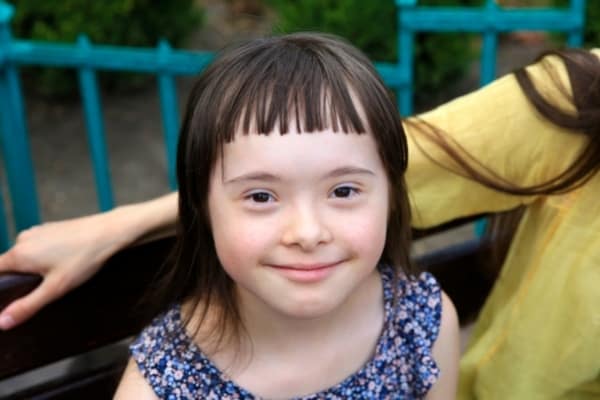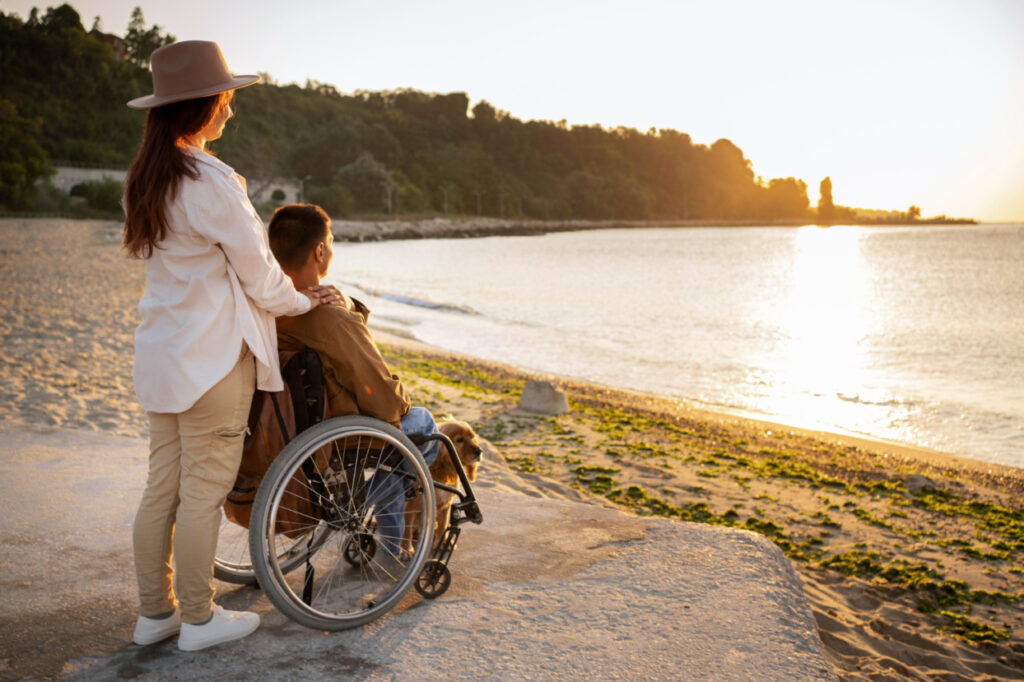Caring for someone with Down syndrome can come with challenges. They thrive with proper care and support. As such it’s important to treat someone with Down Syndrome with patience and love.
Parents or caretakers of people with Down syndrome need to understand this condition better to help them provide proper care. In this guide, you will learn about Down syndrome and how to take care of people with the condition.
What’s Down Syndrome?
Research indicates that 1 in every 700 to 1,100 Australian-born babies have Down syndrome. This is a genetic condition where a person is born with more chromosomes than usual.
Typically, a baby has 46 chromosomes, but those with down chromosomes contain an extra chromosome making them 47. An additional chromosome at position 21, is the reason the condition is sometimes referred to as Trisomy 21.
Down syndrome develops before or at conception when a cell, either the sperm or egg cell, divides differently and result in a mirror chromosome 21.
What Kind of Support Does Someone with Down Syndrome Require?
People with Down syndrome require different types of support. Some of these include;
1. Financial support
Both children and adults with Down syndrome require support services and products to help them live independently. These usually come at a cost, which some people have difficulty affording. As a result, they need financial support to cover the costs.
2. Emotional support
Individuals with Down Syndrome can experience emotions differently. Family members need to understand them and provide the proper emotional support.
Also, they need someone who can listen, talk with and motivate them. By spending time with them, you get to interpret their messages, know them better and understand what makes them tick.
3. Medical support
Ongoing medical is a necessity for people with Down syndrome to enable them to live their best life. These individuals usually have specific health needs, which may require them to regularly visit specialists like speech therapists and psychologists, among others.
How to Provide Necessary Care
People with Down syndrome can flourish with the right physical and emotional care. This can be done by:
Being shown love by their family
Being treated similar to their siblings
Being acknowledged to have a unique personality
Being viewed as people first, instead of people with special needs
Providing care to your child
Children who have Down syndrome require care, love, and support. They also need to be treated similarly to other siblings. However, parents should understand that it may take a long time before they can master some skills like walking and talking. As such, they have to show patience with these children as they achieve these milestones.
Kids below the age of 7 become automatically eligible for NDIS under the early childhood early intervention. This program allows parents to work with early childhood partners to get support and services. These include intervention therapies and providing funds for low-cost assistive technology.
Besides the basic skills and health needs, children require proper support when transitioning through different stages of life, such as schools and other social situations.
Providing care for adults
it’s important to treat adults with Down syndrome with love and care. These people have abilities just like other people, and it’s the role of the family to encourage them to show their abilities. If you support these people and show a positive attitude and high expectations towards them, they are likely to have high achievements.
The family should be the driving force that can help people with Down syndrome to make positive progress.
Applying for NDIS Eligibility
The National Disability Insurance Scheme, also referred to as NDIS was established by the Australian government to support people with disabilities, including cognitive, physical, and sensory disabilities, among others. The scheme provides support programs to all eligible people and their families.
People over the age of 7 who have Down syndrome must register to be eligible for the NDIS. While there is no automatic eligibility into NDIS, almost all applicants are accepted.
To be eligible, you need to submit proof of;
Residency
Age
Disability/ the need for Early intervention
Independent assessments
In order to have access to NDIS, you need to go beyond proving you have Down syndrome. You have to show indeed the condition impacts your daily functioning.
As a result, NDIS introduced independent assessments, starting in 2021 to ascertain how the condition affects the way you conduct your daily activities. This assessment also helps the NDIS to devise plans and budgets for the eligible NDIS participants.
NDIS Planning
Once you have access to NDIS, you need to create a plan about your needs and goals. An NDIS planner will help you design your plan, after which they will offer you a draft plan to give you an idea of the things you might need.
You will go through the plan and suggest changes. Once you reach an agreement, the plan becomes official. NDIS will then start providing you with the support you need.










